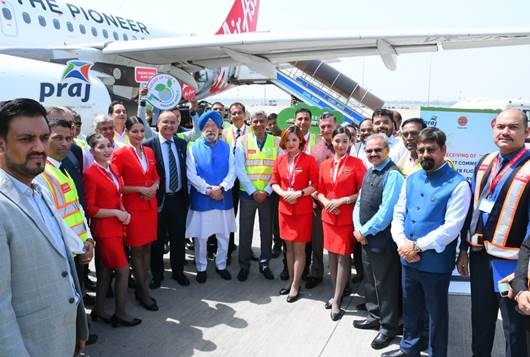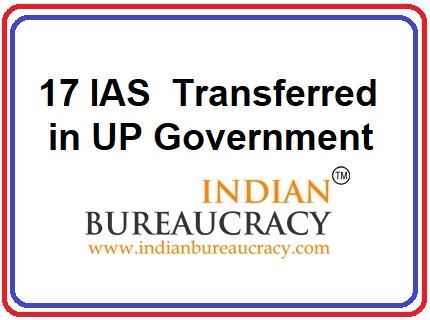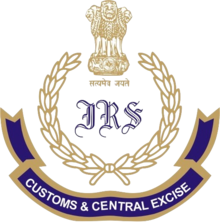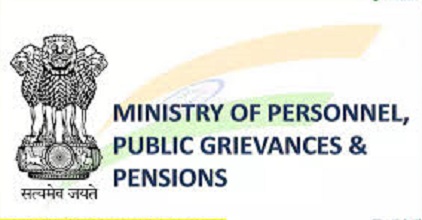
Union Minister of Petroleum & Natural Gas and Housing & Urban Affairs, Shri Hardeep Singh Puri, highlighted the importance of India becoming energy self-reliant (Atmanirbhar) by 2047, aligning with the vision set by Prime Minister Narendra Modi. Speaking at an event in New Delhi, the minister emphasized the significant contribution the petroleum sector would need to make to realize this vision. Secretary of the Ministry of Petroleum & Natural Gas, Shri Pankaj Jain, was also present at the event.
In a notable development toward decarbonizing the aviation sector, India successfully flew its first commercial passenger flight using indigenously produced Sustainable Aviation Fuel (SAF) blend. Air Asia flight (I5 767) flew from Pune to Delhi, powered by SAF blended aviation turbine fuel (ATF) produced by Praj Industries Ltd using indigenous feedstock supplied by Indian Oil Corporation Ltd. The minister received this special flight at the airport.
Describing the occasion as a significant milestone in India’s efforts toward achieving net-zero emissions by 2070, Shri Hardeep Singh Puri expressed his satisfaction at witnessing the first commercial flight fueled by SAF blended ATF. He highlighted that this flight served as a demonstration with a 1% SAF blend. The minister shared that by 2025, the target is to achieve 1% SAF blending in Jet fuel, requiring approximately 14 crore liters of SAF per year. In a more ambitious scenario, targeting a 5% SAF blend would necessitate around 70 crore liters of SAF per year.
Congratulating IndianOil, Air Asia, and Praj Industries for their contributions, the minister reiterated the Hon’ble Prime Minister’s vision of developing indigenous solutions to mitigate the environmental impact of aviation and promote the widespread adoption of SAF in India. Representatives from IndianOil, Praj Industries, and AirAsia were also present at the event.
Shri Hardeep Singh Puri emphasized the need for alternative and sustainable fuel sources, noting that SAF production technology has made significant progress. Unlike traditional jet fuels, SAF is derived from renewable sources such as agricultural waste, municipal solid waste, and forestry residues. This allows SAF to reduce greenhouse gas emissions by up to 80% compared to conventional jet fuel.
With a focus on Atmanirbhar Bharat (self-reliant India), the Petroleum Minister emphasized that the production of SAF using sugarcane molasses as indigenous feedstock and technology is a major step toward self-reliance and decarbonization of the aviation sector. He highlighted India’s commitment to achieving its Nationally Determined Contributions (NDCs), including reducing the emissions intensity of GDP by 45% by 2030 from the 2005 level. Shri Hardeep Singh Puri also noted that India is a strong advocate for energy transition and alternative energy, such as biofuels, on the global stage.
Addressing the civil aviation sector in India, the minister stated that it consumes approximately 8 million tons of ATF and emitted around 20 million tons of greenhouse gases in 2019 (pre-COVID). He pointed out that India has the potential feedstock for producing 19 to 24 million tons of SAF per year, while the estimated maximum requirement of SAF in India, considering a 50% blend, is around 8 to 10 million tons per year by 2030.
Expressing pride in the historical milestone, the Petroleum Minister highlighted the benefits of using indigenous biological feedstock (sugarcane molasses), including boosting the rural economy and providing additional income to farmers. He mentioned that more than 5 lakh farmers would benefit from supplying sugarcane as feedstock with a 1% SAF blend. Additionally, this initiative would generate over 1 lakh green jobs.







Leave a Reply
You must be logged in to post a comment.